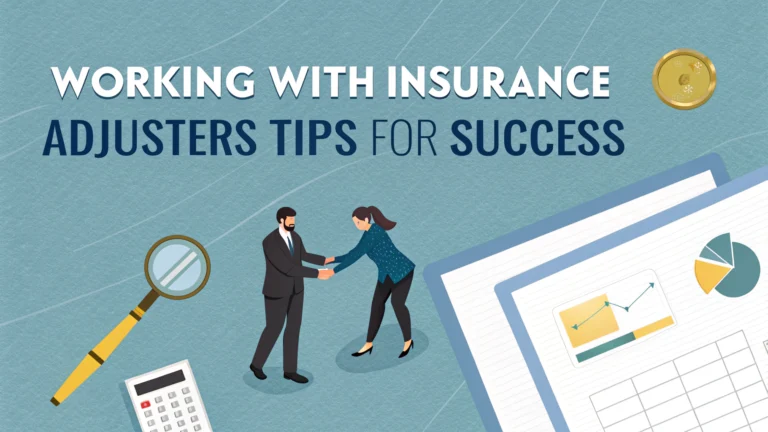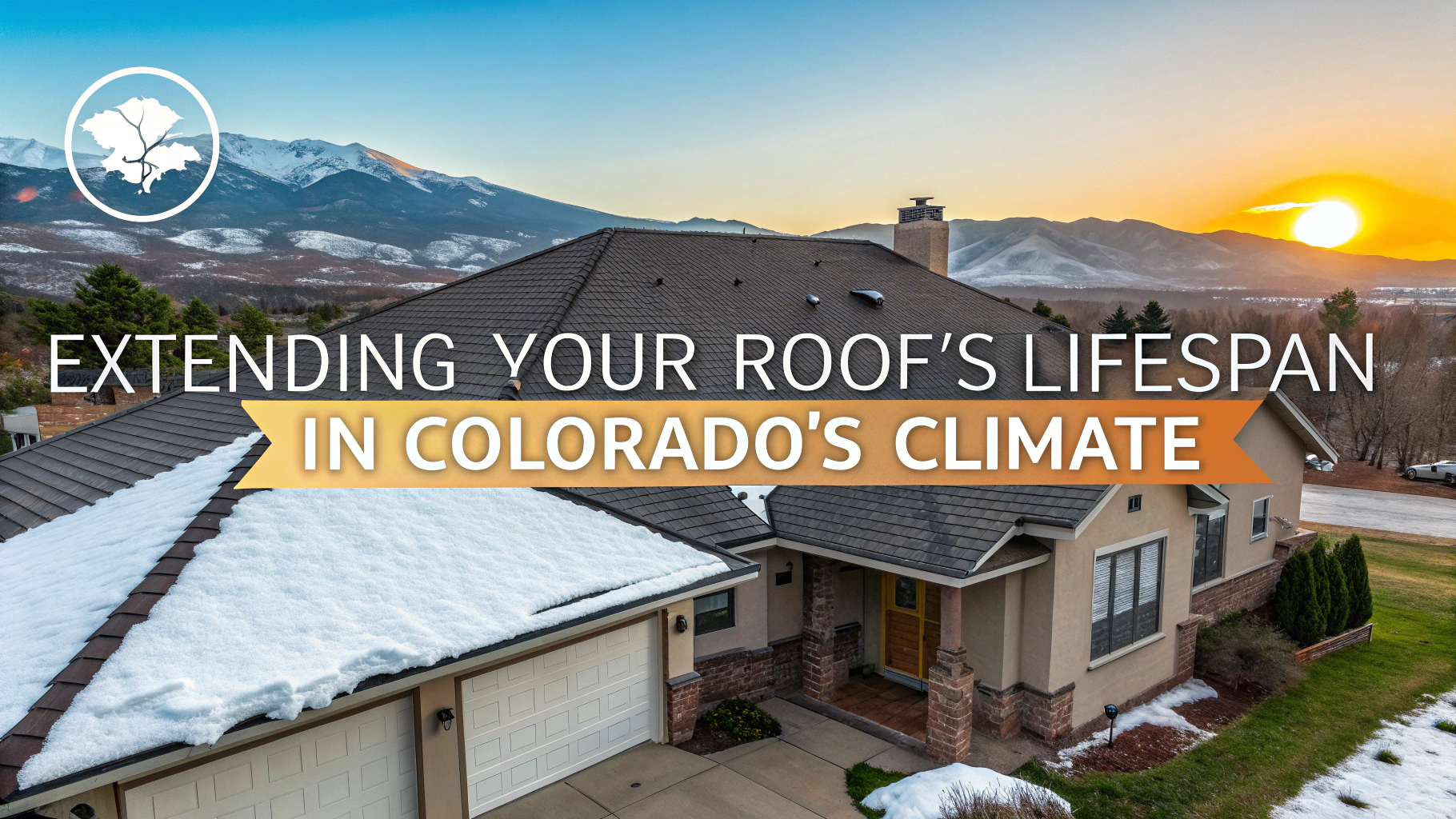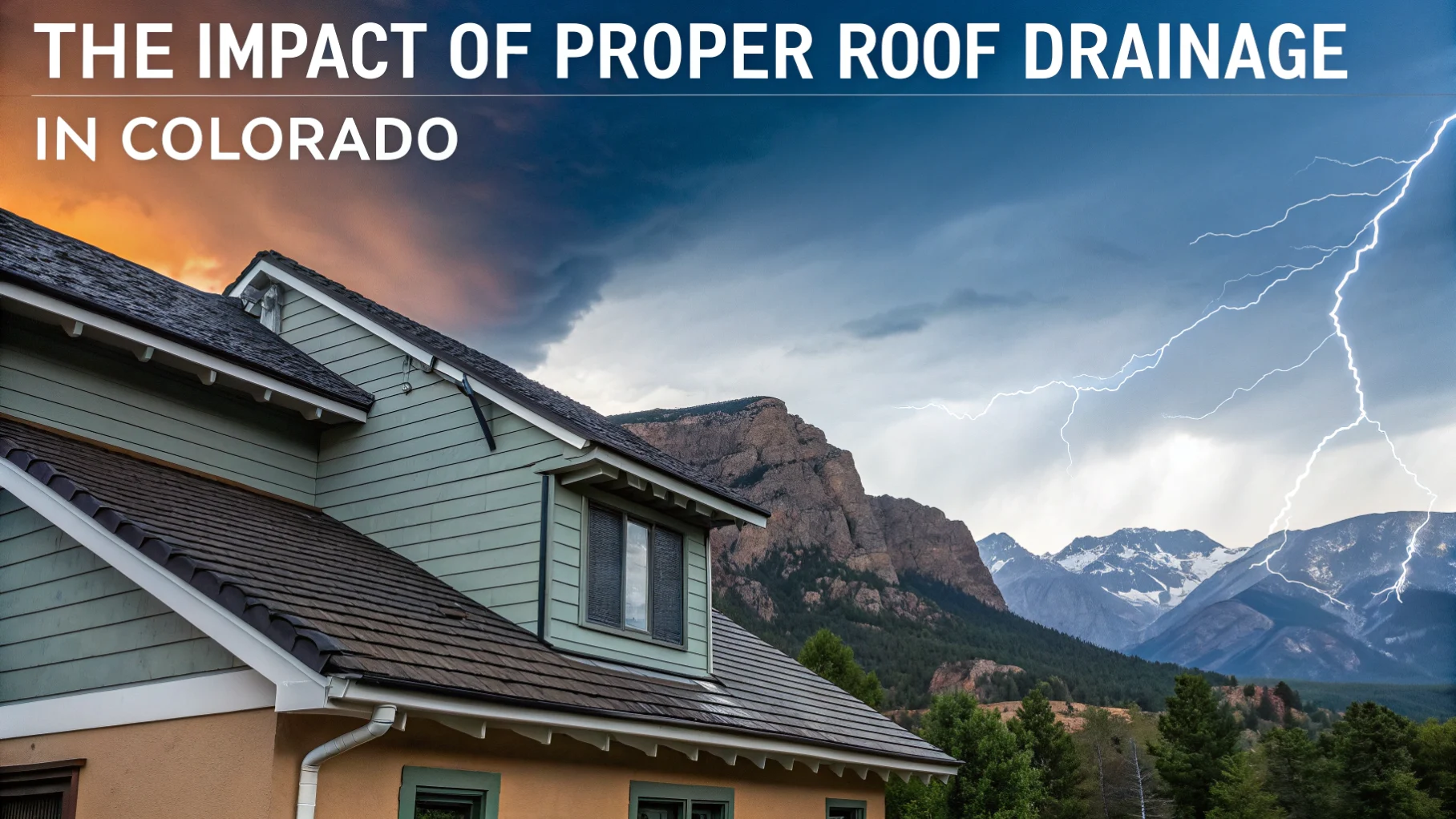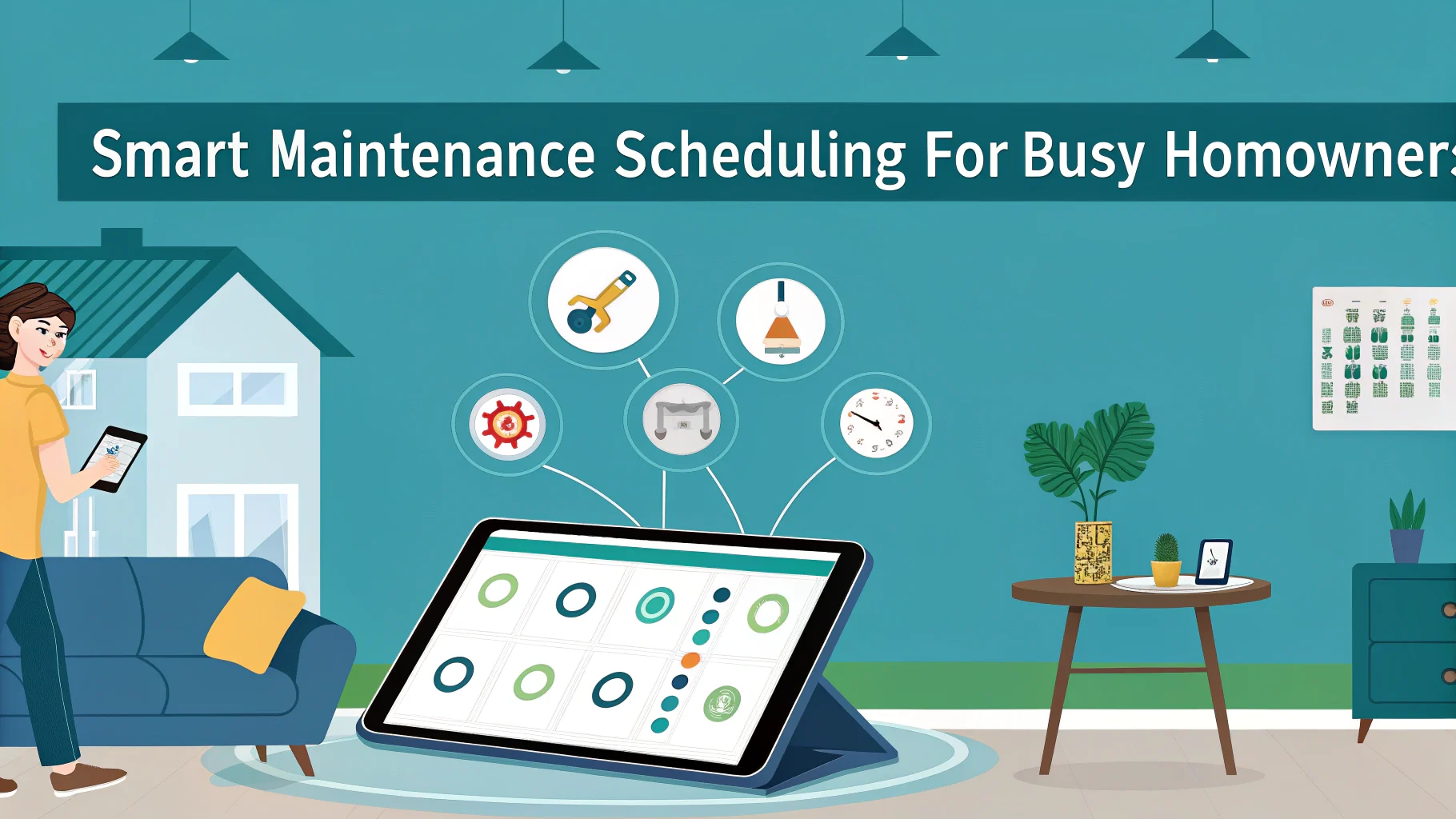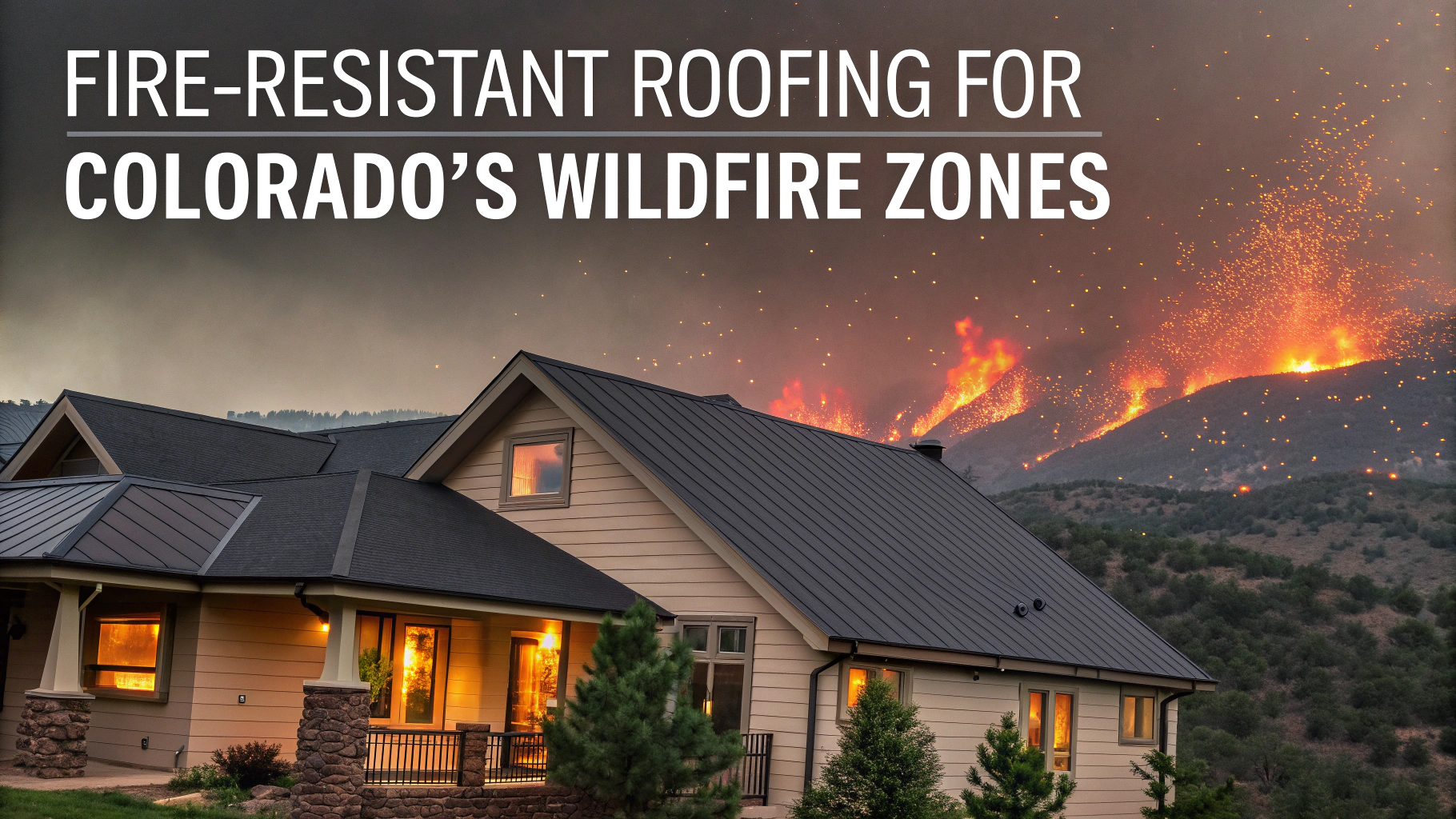Working with insurance adjusters after roof damage requires understanding their role and how to effectively communicate your needs.
Insurance adjusters evaluate claims and determine coverage amounts, making them key players in getting your roof repaired or replaced after damage.
This guide helps Colorado homeowners navigate the insurance claim process and work productively with adjusters to achieve fair settlements.
Before Meeting the Adjuster
- Document all damage with clear photos and videos
- Create a detailed inventory of damaged items
- Review your insurance policy coverage
- Contact a licensed roofing contractor for inspection
- Keep receipts for any emergency repairs
Meeting Preparation Tips
Schedule the inspection during daylight hours when weather conditions allow for a thorough assessment.
Have your roofing contractor present during the adjuster’s inspection to point out damage and discuss repair needs.
Key Documentation to Prepare
- Copy of your insurance policy
- Photos and videos of damage
- Contractor’s inspection report
- Maintenance records
- Previous repair records
- Weather reports from the date of damage
Communication Best Practices
Keep all communication professional and document every interaction with your adjuster in writing.
Follow up phone conversations with email summaries to maintain a paper trail.
Ask questions if you don’t understand any part of the process or the settlement offer.
Common Insurance Claim Issues
- Disagreements about the extent of damage
- Coverage disputes for certain types of damage
- Depreciation calculations
- Timeline delays
Your Rights as a Policyholder
Colorado law gives you the right to choose your own contractor for repairs.
You can dispute the adjuster’s findings through your insurance company’s appeals process.
Important Contact Information
- Colorado Division of Insurance: 303-894-7490
- Colorado Roofing Association: 303-484-0549
- Better Business Bureau of Colorado: 719-636-1155
Next Steps After Settlement
Review the settlement offer carefully before accepting.
Get multiple contractor bids to ensure the settlement amount covers necessary repairs.
Keep copies of all paperwork and correspondence for your records.
Getting Professional Help
Consider hiring a public adjuster if you face significant challenges with your claim.
Contact a roofing attorney if legal assistance becomes necessary.
Work with licensed, local roofing contractors who understand Colorado building codes and weather patterns.
Moving Forward Successfully
Maintain detailed records of all roof repairs and regular maintenance after the claim is settled.
Consider upgrading your insurance coverage based on your claim experience.
Build a relationship with a trusted local roofing contractor for future needs.
Insurance Claim Timeline Expectations
Most standard claims should be processed within 30-60 days in Colorado.
Complex claims involving multiple types of damage may take longer to resolve.
- Initial response: 24-48 hours
- Inspection scheduling: 3-7 days
- Settlement offer: 2-3 weeks
- Payment processing: 5-10 business days
Preventing Future Claim Issues
Regular Maintenance Schedule
- Bi-annual roof inspections
- Gutter cleaning and maintenance
- Tree trimming near roofline
- Prompt repairs of minor issues
Documentation Practices
- Keep maintenance records
- Photo documentation of roof condition
- Save inspection reports
- Document weather events
Working With Your Contractor
Choose contractors who offer comprehensive warranties on materials and labor.
Ensure they provide detailed scope of work documents for insurance purposes.
- Request references from similar insurance projects
- Verify insurance and licensing
- Get timeline commitments in writing
- Review warranty terms carefully
Protecting Your Investment
Review your insurance policy annually to ensure adequate coverage for current roof value.
Consider impact-resistant materials for future replacements to potentially lower insurance premiums.
Establish relationships with trusted roofing professionals before emergencies arise.
Stay informed about local building codes and insurance requirements to protect your home investment long-term.
FAQs
- What is the role of an insurance adjuster in a roofing claim?
An insurance adjuster evaluates roof damage, reviews documentation, and determines the coverage amount based on your policy terms and the extent of damage. - How long should I wait for an insurance adjuster after filing a claim?
Insurance adjusters typically respond within 24-48 hours to schedule an inspection, and should complete their assessment within 1-2 weeks after a claim is filed. - Should I get an independent roofing inspection before the adjuster arrives?
Yes, having an independent roofing contractor inspect and document damage before the adjuster’s visit provides additional evidence and helps ensure all damage is properly identified. - What documents should I prepare for the insurance adjuster?
Prepare photos of damage, maintenance records, previous repair documentation, and a detailed list of damaged areas, along with your insurance policy information. - Can I challenge an insurance adjuster’s assessment if I disagree?
Yes, you can dispute the assessment by providing additional documentation, requesting a second inspection, or hiring a public adjuster to represent your interests. - Should I sign any documents the insurance adjuster presents during inspection?
Only sign documents after carefully reviewing them. Avoid signing any final settlement agreements until you’re completely satisfied with the assessment and proposed coverage. - Can my roofing contractor communicate directly with the insurance adjuster?
Yes, your roofing contractor can communicate with the adjuster and provide professional documentation of damage, estimates, and necessary repairs. - What if the insurance adjuster misses damage during their inspection?
You can request a supplemental inspection if additional damage is discovered, but document the overlooked damage immediately with photos and professional assessment. - How do I ensure the insurance adjuster accounts for code upgrades in their assessment?
Request that the adjuster specifically address code compliance requirements and confirm your policy includes code upgrade coverage (also known as ordinance or law coverage). - What are the common reasons insurance adjusters deny roof claims in Colorado?
Common denial reasons include normal wear and tear, improper maintenance, pre-existing damage, and damage below insurance deductibles.
